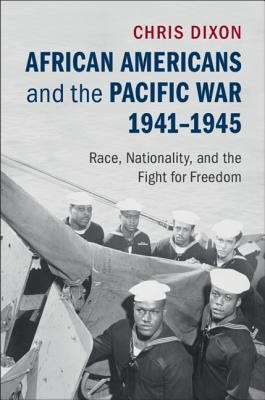
- We will send in 10–14 business days.
- Author: Chris Dixon
- Publisher: Cambridge University Press
- ISBN-10: 1107532930
- ISBN-13: 9781107532939
- Format: 22.8 x 15.4 x 1.7 cm, minkšti viršeliai
- Language: English
- SAVE -10% with code: EXTRA
Reviews
Description
In the patriotic aftermath of Pearl Harbor, African Americans demanded the right to play their part in the war against Japan. As they soon learned, however, the freedom for which the United States and its allies was fighting did not extend to African Americans. Focusing on African Americans' experiences across the Asia-Pacific theater during World War Two, this book examines the interplay between national identity, the racially segregated US military culture, and the possibilities of transnational racial advancement, as African Americans contemplated not just their own oppression but that of the colonized peoples of the Pacific region. In illuminating neglected aspects of African American history and of World War Two, this book deepens our understanding of the connections between the United States' role as an international power and the racial ideologies and practices that characterized American life during the mid-twentieth century.
EXTRA 10 % discount with code: EXTRA
The promotion ends in 23d.00:51:17
The discount code is valid when purchasing from 10 €. Discounts do not stack.
- Author: Chris Dixon
- Publisher: Cambridge University Press
- ISBN-10: 1107532930
- ISBN-13: 9781107532939
- Format: 22.8 x 15.4 x 1.7 cm, minkšti viršeliai
- Language: English English
In the patriotic aftermath of Pearl Harbor, African Americans demanded the right to play their part in the war against Japan. As they soon learned, however, the freedom for which the United States and its allies was fighting did not extend to African Americans. Focusing on African Americans' experiences across the Asia-Pacific theater during World War Two, this book examines the interplay between national identity, the racially segregated US military culture, and the possibilities of transnational racial advancement, as African Americans contemplated not just their own oppression but that of the colonized peoples of the Pacific region. In illuminating neglected aspects of African American history and of World War Two, this book deepens our understanding of the connections between the United States' role as an international power and the racial ideologies and practices that characterized American life during the mid-twentieth century.


Reviews